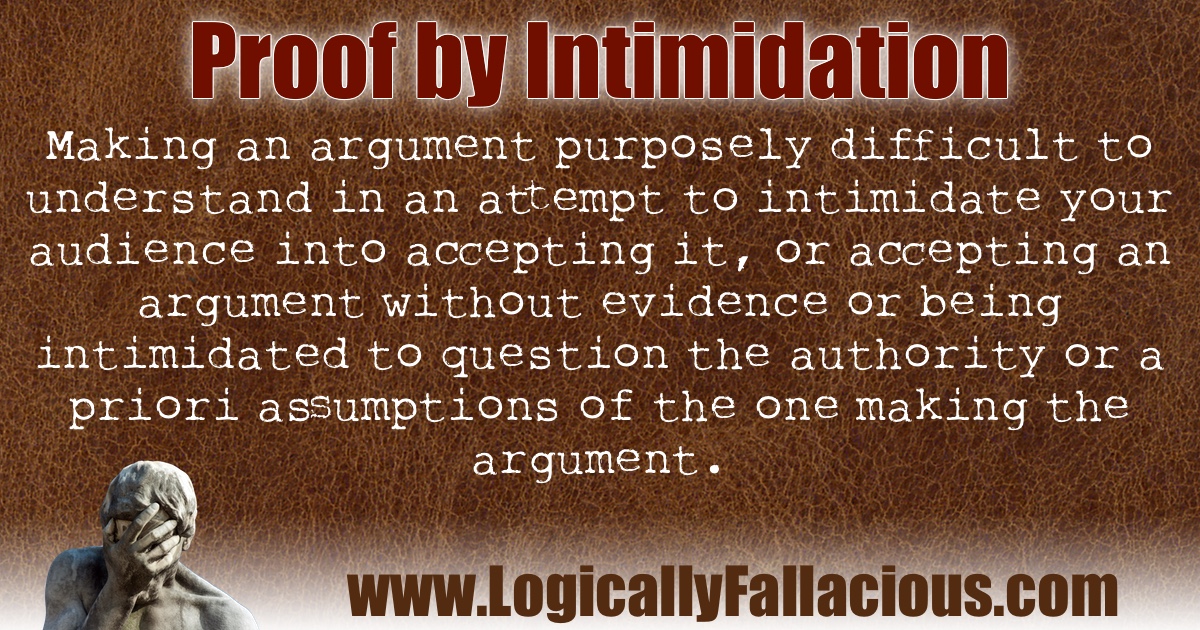argumentum verbosium
(also known as: proof by verbosity, fallacy of intimidation)
Description: Making an argument purposely difficult to understand in an attempt to intimidate your audience into accepting it, or accepting an argument without evidence or being intimidated to question the authority or a priori assumptions of the one making the argument.
Logical Form:
Claim A is made by person 1.
Person 1 is very intimidating.
Therefore, claim A is true.
Example #1:
Professor Xavier says that the egg certainly came before the chicken. He won the Nobel prize last year for his work in astronomy, and the MMA world championship -- so I don’t dare question his claim.
Explanation: Professor X sure sounds like a brilliant and tough guy, but that is not evidence for his claim.
Example #2:
Dr. Professor Pete said, with the utmost eloquence, masterful stage presence, and unshakable confidence, that 1+1=3. Therefore, 1+1=3.
Explanation: Despite the intellectually intimidating presence of Dr. Professor Pete, 1+1 still equals 2.
Exception: If you live in a state where you can be killed for asking questions, then this is not a fallacy, but a survival technique.
Tip: If you live in a state where you can be killed for asking questions, move.
